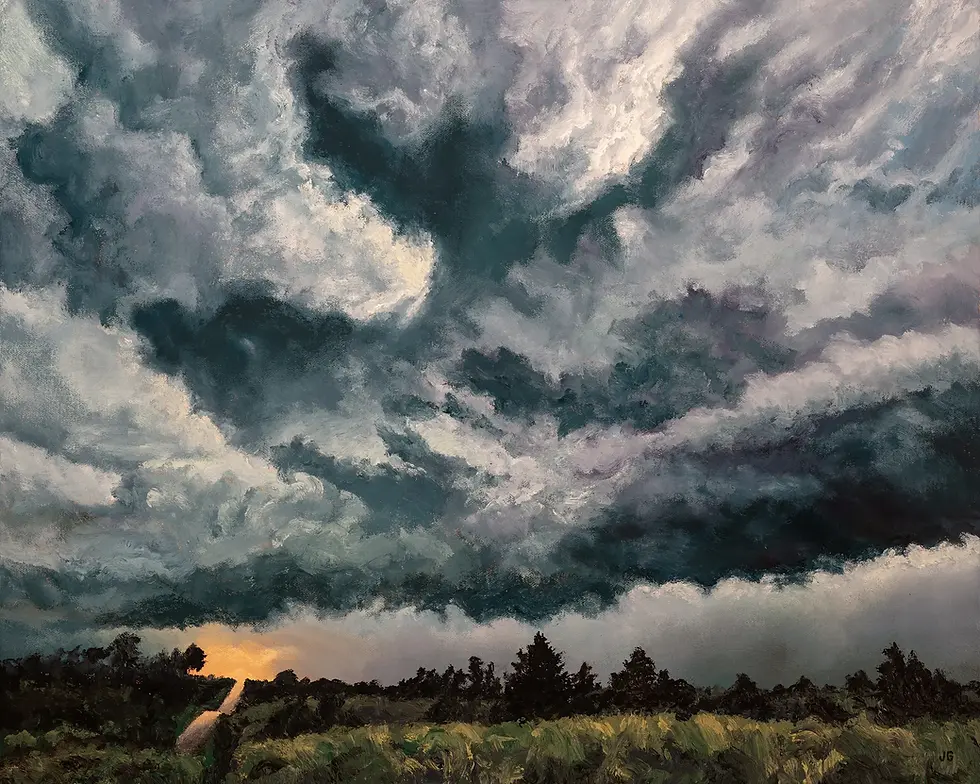October horror treats, with your horror host, C-Dawg Fangston.
- Colin Fleming

- Oct 1, 2018
- 5 min read
So I'll do this periodically throughout October: highlight cinematic and TV treats of a horror-related nature, and paintings, and stories, and music, and radio programs. Recommendation fun.
It has been driving me crazy tonight, because I am pretty sure in my career I wrote about the 1977 BBC version of Count Dracula, with Louis Jordan as the fanged one, but I cannot find this piece. So, person or people who will be assembling my complete writings if I should get hit by a bus: please look for that on this computer and on Backblaze and out in the world. When I see something I wrote, and I see a sentence in it, I know what the next sentence will be, why I ordered the words as I did, exactly what I was thinking. But I don't know if I wrote this. Paradoxical, no? This production aired three days before Christmas. It is the most faithful adaptation to Stoker's novel. By a wide margin. Where does this rank, Drac-wise? Well, I guess that depends. Personally, I think the 1931 Bela Lugosi version pulls rank on all others because of what it set in motion, Lugosi's iconic portrayal, and just how odd it is. It's like part sound film, part not-sound film, and the whole thing feels cut off from the very rules of cinema, the notions, even, of cinema. It's a disembodied film. Part of that has to do with when it was made, and it also being the first undertaking of its kind. Then there is Murnau's Nosferatu. Also, Hammer's 1958 Dracula. Want to slot this one in the clean-up spot? I think that's reasonable.
This here is a Suspense radio adaptation, from 1948, of Carl Stephenson's "Leningen vs. the Ants" from 1938. Have you read that short story? You should. Basically, this plantation owner in the rain forest of Brazil has a problem: hordes of ants, with super-smart brains and strategy skills, want to eat his plantation and everyone on it. It's like a military story, almost.
Next we have Pigeons from Hell from Boris Karloff's Thriller series. This series had some issues. Sometimes it wanted to be about crime stories, other times, supernatural stories. The latter were always way better. There are some people who think this is the scariest single program ever aired on American television. Do I agree? No, I don't. What may be the scariest might be the one I'm thinking of discussing on Downtown with Rich Kimball next week--I haven't decided--but no spoilers!
This is the last track on Andrew Hill's 1964 LP, Point of Departure, which, for a single album, at least, might feature the best band in jazz history. As you will note, the song is called "Dedication"; but Hill had first titled it "Cadaver." That's Richard Davis on bass. He played on Van Morrison's Astral Weeks; Tony Williams on drums; Eric Dolphy on bass clarinet; Kenny Dorham on trumpet; Hill on piano; Joe Henderson on tenor. That's an insane freaking band.
Jamie T is, in my view, one of the last actual artists left in the world. This is "Zombie" from his masterwork of an album, Carry on the Grudge, from fall 2014. I think this song also applies to most of the general populace these days.
The opening scene of Orson Welles's 1948 version of Macbeth, a picture he shot in next to no time for a cheapjack studio that liked to make shitty Westerns. Oh. Typical Welles, making films for a place he should never have been at because he was leagues beyond that place. But so it went. Them's definitely some weird ass sisters.
Goya! What are you doing, sir? This painting is called Saturn Devouring his Son. The little fucker. No, wait, that's wrong. My bad/mil disculpas. It's one of the so-called Black Paintings, which Goya painted on a wall along a house. Not for anyone to see. Just because. Although everyone eventually saw it. I see this and I think, "well, good for you, Saturn, taking him out before he could come a'callin' for your gig!" That's probably a little grim on my part.

I need an arts program on TV or radio. Right? A little NPR action? Once a week, they give me a two hour block, we discuss notable new releases, works on their anniversary, we range from film to art to all kinds of music to TV to literature? Give you the good recs, give you the history, do my jokes, bring an edge, bring some charm, loads of erudition, make it fun, have it work for the neophytes who are wandering in and the diehards? I could kill that. This is Michael Hordern reading M.R. James's classic 1911 story, "Casting the Runes," which served as the basis for the equally awesome Jacques Tourneur film, Night of the Demon, from 1957. You know how almost everyone in modern fiction is so unimaginative that they title every story "The (common noun)"? Well, you are allowed to have compelling titles! Seriously! I shit you not! This is a compelling title. Tourneur was the director of the Robert Mitchum/Jane Greer 1947 noir Out of the Past. Hordern was Jacob Marley in Brian Desmond Hurst's 1951 film Scrooge, which I am writing a book about. As a horror movie. He also starred in the 1968 adaptation of James's Whistle and I'll Come to You.
This is the title sequence for Creature Double Feature, which ran where I grew up, when I was growing up. The deal was that on Saturday afternoons, channel 56--not channel 856, which is what we get today--would show two horror films back to back. A lot of them were Japanese atomic monster movies, and a lot were the Universal monsters from the golden age of the 1930s and 1940s. It's how I first saw that Lugosi 1931 Dracula, which scared the fuck out of me. The pacing was so bizarre. It made me feel drugged, like a vampire had managed to corrupt my blood and throw off my equilibrium! And everyone's accent was nuts.
White Stripes, "Death Letter," Boston, 2003, was at this show, the intensity of this performance frightened me.
The Pogues. "Turkish Song of the Damned." 1987, from If I Should Fall From Grace with God. A problem, potentially. For all of Shane MacGowan's songwriting prowess, and for how well he could sing, you almost forget how tight this band was. Note the part when the band drops out and he has to fill that sound space with just his voice. Do you get what he's doing there? His voice is meant to be the whole band, like its absorbed it and is redistributing it. Not easy to do.
I'm going to help you out with this last one. You hear this all the time, you even hear it at sports stadiums, like when it's victory time and it must be reinforced that this moment is super important! But I wonder how many people know what that music playing--that classical music--is? It's O Fortuna from Carl Orff's Carmina Burana. Now you can impress your friends with that as Tom Brady takes the field for another game-winning TD drive.




Comments